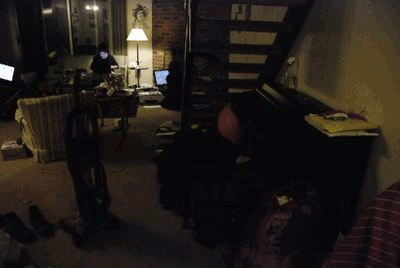By Diane Chiddister
On Friday, Sept. 4, the keys to Antioch College will be transferred from Antioch University to the Antioch College Continuation Corporation, or ACCC. The action marks the college’s revival after having been closed for a year, and its return, after 30 years as part of a university system, to being an independent liberal arts college.
The public is invited to a recognition of the historic event at around 5 p.m. on the horseshoe on the Antioch College campus. The event will follow several hours of paper-signing by ACCC leaders Lee Morgan and Matthew Derr, who have been vested by the ACCC board with the authority to sign the agreements, and Antioch University Chancellor Toni Murdock and Antioch University Board Chair Art Zucker, who have been vested by the university board with the authority to do so, according to Morgan and Derr in an interview Tuesday evening.
Morgan, Zucker and Great Lakes Colleges Association President Rick Detweiler will speak at the 5 p.m. event, and Antioch professor emeritus Al Denman will give the benediction.
Friday’s closing finalizes an agreement between the university and the ACCC that was made two months ago. While that agreement identified Aug. 31 as the target date for closing the deal for an independent college, the amount of detail involved led to missing that target by a few days, Morgan said. The closing was dependent on the approval of several outside agencies, including the Ohio attorney general, the Greene County probate court and bondholders for Antioch University.
The June 30 agreement followed a year of negotiations in a task force composed of Derr and Morgan, representing the alumni group ACCC, and university trustees Dan Fallon and Jack Merselis. Detweiler served as the mediator for the group.
“There is relief that the year of hard work and focus resulted in an independent Antioch College and a university that has the best possible prospects to thrive,” Derr said. He and Morgan were speaking for the task force, they said.
The revival of the college is a singular event in the history of higher education, Derr and Morgan said.
“Antioch College was one of the top colleges in the country in the late 1960s and it fell on hard times,” Derr said. “Here we are reviving it. There’s never been a story like this in higher education. No one thought we could pull it off.”
The closing follows a two-year Antioch College alumni effort to save the college after the university board voted in 2007 to close the school the following year due to financial exigency.
The alumni effort to create an independent college succeeded because there was “such a broad and diverse group of people who put forth such a level of effort and conviction that the college should survive,” Derr said, describing the effort as a “relay race” in which, when one group of alumni faltered, another took over.
Many college alumni cared deeply about saving the college because they believed they had received a unique education that needed to be available to future generations, especially in an increasingly complex world.
“It’s a simple model but a powerful one,” Morgan said, regarding the Antioch College synthesis of scholarship, self-governance and real-world work experience. “No one else is doing it.”
The ACCC raised $6 million to pay to Antioch University as part of the June 30 agreement, and an additonal $10 million to begin college operations. Leaders anticipate the need to raise about $40 million more in the next several years, Derr has stated. Morgan and Derr were the key fund raisers for the effort.
The role of Detweiler and the GLCA in reaching the agreement was pivotal, Derr said this week.
“We’re very grateful to the GLCA and Rick Detweiler,” Derr said. “Without Rick and the support of the GLCA presidents, this agreement would not have happened.”
After the Labor Day weekend, Derr, who is the chief transition officer for the ACCC, will set up his office in the second floor of the Olive Kettering library on the Antioch campus. His immediate tasks include hiring people to trim the trees, clean the gutters, and other necessary work required to return the physical plant to good shape after having been shuttered a year, he said.
The hiring of the new staff for the college will also continue. ACCC leaders anticipate hiring about 37 faculty and staff, including the staff for Glen Helen. About 10 employees have already been hired, including Antiochiana archivist Scott Sanders and two administrative assistants, Derr said.
In a previous interview, Derr stated that the number of first-year employees will include about five or six faculty members from various disciplines. These faculty, who will be known as Arthur Morgan Fellows, will be responsible for developing programs for a “symposium year” in the college’s first year. ACCC leaders have stated that they do not anticipate having new students on campus until the fall of 2011.
But between the closing of the deal on Friday and the beginning of the newly independent Antioch College on Tuesday, Derr will take a few days off. He has not had a vacation in some time, he said.
Contact: dchiddister@ysnews.com







